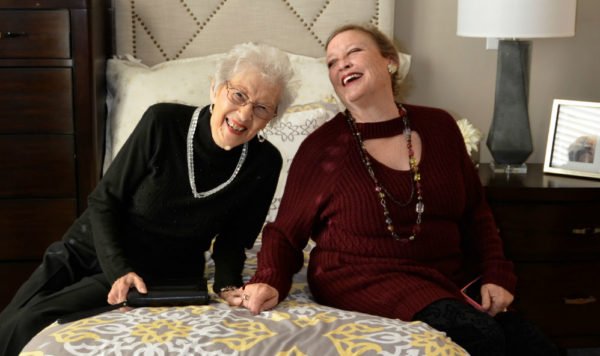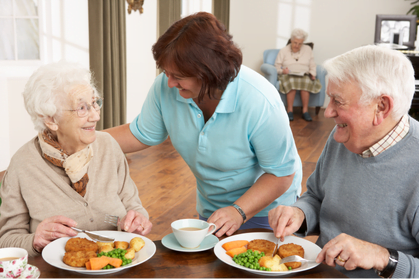
Your Aging Parent’s Safety
Safety Inside the Home
When using a checklist for visiting your aging parents, paying close attention to their safety inside or outside the home is crucial. Here are key things to assess:
- Check their footwear. Is it safe and comfortable?
- How are they navigating steps?
- Is the home free of extension cords or area rugs that could cause a trip or fall?
- How is the lighting?
- Are there nightlights placed throughout the house? Are they working?
- Is there a phone or emergency call system easily accessible from all rooms?
- Are they having trouble getting in and out of the tub?
- Are they having trouble getting out of bed safely? Or are they opting to sleep in a recliner or on the sofa instead?
- Did you notice any bruises, burns, or other injuries?
- Are they seeing clearly or squinting and tripping over things more than usual?
- How is their balance or strength?
- Are their medical appliances being appropriately used and in good order, such as eyeglasses, dentures, or hearing aids?
- Check the household items. Make sure the drains aren’t clogged, there are no burned out lights or broken appliances.
Safety Outside of the Home
- Are driveways or walkways full of ice and snow?
- Have their driving skills changed?
- Examine the car, are there any unusual scratches or dents that weren’t there before?
- Has your loved one gotten any traffic tickets lately?
- Are they trying to accomplish yard work and maintenance projects that could be unsafe or cause injury?
Your Aging Parent’s Health & Wellness
Medications
Home medication errors have become a growing concern, with calls to Poison Control doubled over a 13-year study —and that’s only the reported incidents. Ensuring your loved one is managing their medications safely is vital.
- Have their medications changed? Are there new vitamins or supplements you haven’t seen before?
- Is the medication organized? We need to make it easy for them to take the right dose at the right time.
- Check to make sure none of the medications are expired.
A thorough review of their medications can help prevent mistakes and support their overall health.
 Nutrition
Nutrition
When caring for an aging loved one, monitoring their nutritional status and eating habits is crucial for maintaining their health and independence. Changes in eating patterns or ability to prepare food can be early warning signs that additional support may be needed.
- Are they able to get to the grocery store?
- Is the refrigerator stocked with fresh foods?
- Make sure there is no moldy or expired food in the house.
- Are they capable of preparing a meal without assistance?
- Are there burned pots and pans or burn marks on the floors or counters?
- What is their weight compared to the last time you saw them? Have they lost weight?
Cleanliness
Aches and pains can make it more difficult to complete every day housekeeping tasks. Have they lost interest in maintaining their personal hygiene? – These are things to look for.
- Are they stocked with dish soap, body soap, and cleaning supplies?
- Is the house messier or dirtier than usual?
- Is there a buildup of clutter, stacks of newspapers, unopened mail, or unpaid bills?
- Have they displayed poor general hygiene as of late?
Changes in Memory
During this recent visit home, did you notice changes in your older loved one’s ability to remember or recall information? This can be due to an undiagnosed illness (such as a urinary tract infection). Other times it could be an indicator of memory loss and indicates they should see a doctor. Here’s some helpful questions to answer.
- Has it become more difficult to find the right words when having a conversation?
- Do you notice any strange new behaviors, like repeating stories or being unusually confused about simple things?
- Are there collection notices, unpaid, or telephone messages from debt collectors?
- Does your loved one claim they already paid those bills?
Senior’s Social Life
Depression is not a normal sign of aging. Difficulty arranging transportation or losing interest in activities they once loved can be signs of significant changes since your last visit.
- Are they still enjoying the activities they used did?
- Have they become reluctant to leave the house?
- Are they staying connected with friends and community organizations?
When visiting an aging loved one over the holidays, take the time to ask these essential questions and observe for signs that they’re maintaining their social well-being and independence.


 Nutrition
Nutrition